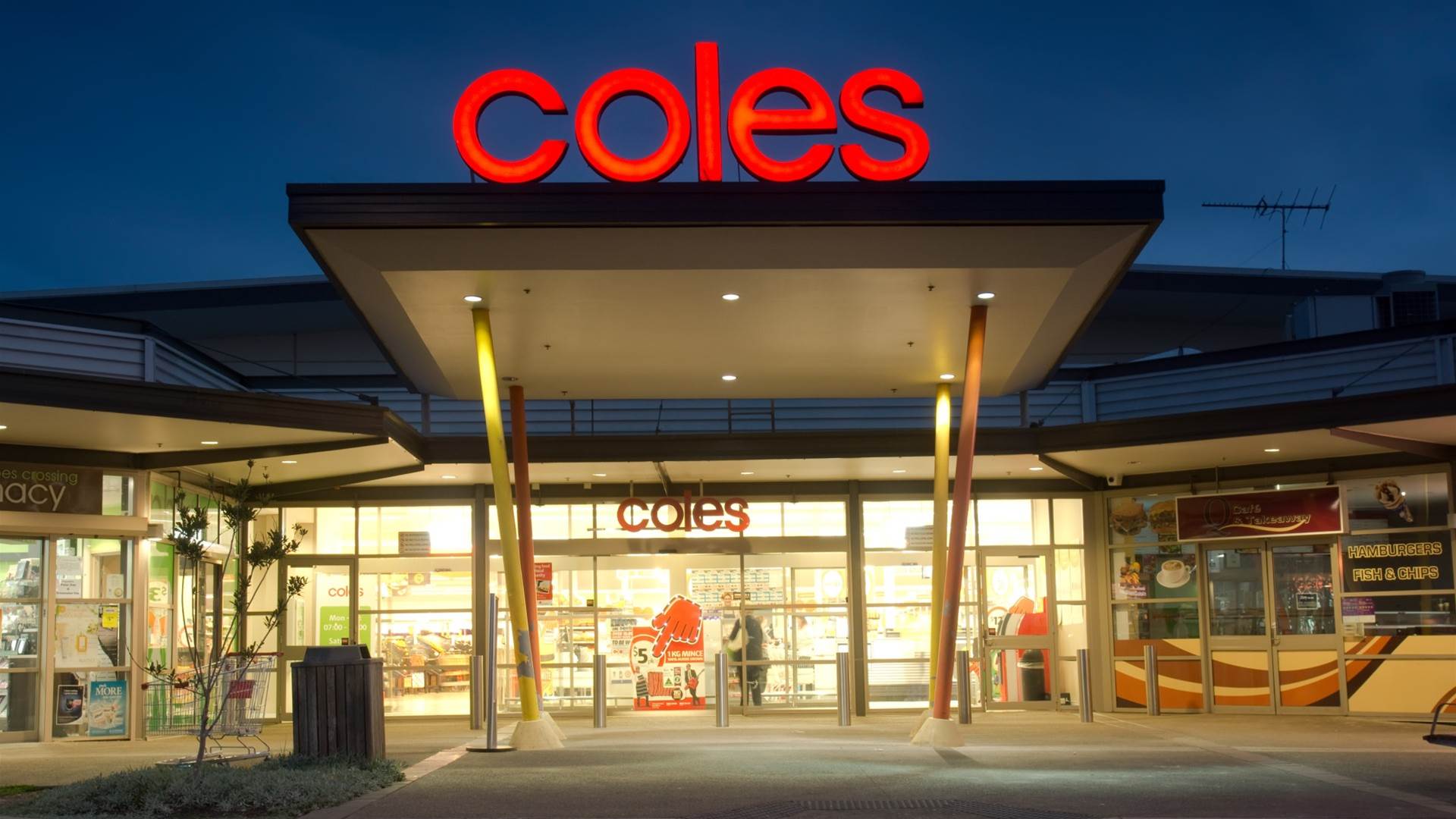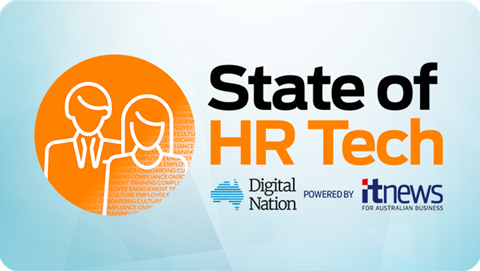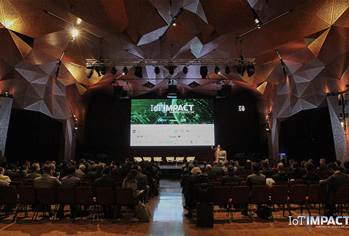The first time a customer logs into Coles Online, they can create and save shopping lists for future use by searching, adding and removing items.

Coles crosses to digital

Though they may be new to Coles Online, the customer may have previously shopped at Coles supermarkets. And, if they were a member of the retail giant’s flybuys loyalty scheme, the company already knew their purchase habits.
“Now, if someone puts their flybuys number in, we bring in everything that they've bought in the past, and that cuts the time it takes them to do their first order on Coles Online by about 80 percent,” chief information officer Roger Sniezek says
“That seems relatively innocuous but joins a lot of stuff together [in the background].”
Coles Supermarkets is on a four-year transformation it calls ‘Smart Selling’, automating manual handling, optimising every part of its supply chain, and promising “extensive” use of data analytics and AI to anticipate evolving customer needs.
“We're trying to make life easier for customers and inspire them with great solutions,” Sniezek says.
“You want to allow them to do things as fast as they possibly can.”
Woolworths' personalised push

It’s a similar story over at Woolworths, where the retailer’s two-year “WooliesX” experiment is paying dividends.“WooliesX was established to combine the power of digital, data capabilities, our loyalty program and financial services, and put it all together with the right people and transform the company through a digital transformation and innovation,” chief digital transformation officer Nick Eshkenazi says.
“What was interesting - and what Woolworths saw - is the things that are important that we need to focus on; that is, connected customers are expecting connected experiences, not disconnected ones. They're expecting convenience of a different kind, and they also expect hyper-level personalisation.”
WooliesX saw its customers spending more and more time online. “All the new devices that are being created are all about that to immerse us more and more into that digital space,” Eshkenazi says.
But where always-on connectivity was once touted as a way to work less, not more, the opposite had occurred.
“It was supposed to be helping us to be more efficient where in fact it's helping us to work more,” Eshkenazi says.
“As a result, our level of convenience that we expect from those that we do business with has gone through the roof and [expectations are] continuing to increase. We also expect different levels of experiences - us belonging to a group of people is not good enough anymore, we expect that we're treated as different.”
In its two years of existence, the WooliesX experiment has clearly worked. “We continue to see enormous growth. Digital revenue is growing around 25 percent year over year, and also our digital traffic is growing at 50-plus percent year over year across all our online properties.
“There is considerable consumer excitement around this innovation model and we're seeing some new ways of doing things emerging.”
Greener grass

Even five years ago, Australia’s consumer-facing companies would have gotten away with untargeted and unpersonalised experiences “because almost everyone was doing that,” HSBC Australia’s head of data, analytics and decisioning Fabian Abacum tells the audience of the PegaWorld 2019 summit in Las Vegas.
“But now we are completely empowered by tech. We're connected digitally across all channels. We're used to sharing data, even data about where we are - sometimes were a bit uncomfortable about it but we're used to that concept, and we have consent models in place for that. And we're intolerant of interruption.”
Abacum recalls both good and bad recent experiences. Some companies, he says, seem intent on training consumers to ignore them. Abacum cites a resort membership he bought. He likes the resorts and their facilities, but not their marketing.
“They do have a really nice product, but their marketing is awful,” he says.
“They know everything about me - they know what types of resorts we tend to choose, when we tend to go, they know what we're into - if we hire bikes or whatever. They probably even know or could know what offers I would look at because they do email me.
“But it's just batch emails, there's no personalisation at all, and on top of that, they are bombarding me with telemarketing calls. I made the mistake of answering one of their calls early on, and they just basically try and bully you to upgrade. I just ignore the calls now, they go through to voicemail.
“They've trained me in a sense to ignore them. I know what I want, I like their product. But if someone else came along, who had a similar or better product, and I guess the digital experience like the comms that they presented to me were better, I would probably consider moving over just because of that experience.”
Abacum sees lessons for his own organisation, and others, in his own experiences. “If we are constantly pushing information and offers to customers without regarding their actual context, their circumstances, we are training them to ignore us,” he says.
“We get overexposed, the comms become irrelevant, we start to dodge the outreach and don't leverage the value.”
He also sees great examples of personalisation. He likes the ‘Hey You’ queue-beating app and its ability to target him with relevant offers.
“I can see that the organisation that created that app have started to use smarts because they're presenting offers to me, which are relevant,” he says. “I don't tend to buy food, I tend to buy coffee, so the offers tend to be for coffee.
“I also noticed the other day that I was in another area of Sydney, and the offers were very specific to that area, so they're obviously using geolocation.
“I haven't responded to the offer but I have felt a sense of comfort that they are trying to use some insight. I don't feel that they've been intruded or taken advantage of that relationship.”
Abacum is also pleased with a recent purchase of lawn online. “One particular site was fantastic. I don't know a lot about different types of lawns and how they respond to different climates and soil types, but it made that process really easy for me. Within a few minutes, I'd already ordered it and I could pick the day and time that it would be delivered.”
He later drove to Bunnings to buy lawn fertiliser. “As I sat in the parking lot, I was about to get out and I got a call,” he says. The lawn supplier called, asking if he had any questions about his lawn purchase. Finding out he was about to buy fertiliser, they offered to deliver it as well “at a good price”.
“It was a fantastic experience,” glows Abacum. “As consumers, we've gotten used to that.”
New teams

Digital at Coles Supermarkets is a shared responsibility between Sniezek and fellow executives, including chief marketing officer Lisa Ronson and chief operating officer Matt Swindells.
“In the same way that no one's got a monopoly on having good ideas, this is all of us working together … to try and get this into a coherent experience for our customers and team members,” Sniezek says.
Fitness & Lifestyle Group chief data and technology officer Adam Skinner sees digital as “ultimately everyone’s responsibility”.
The group is home to 510+ health clubs under brands like Fitness First, Jetts, and Goodlife, and also runs on-demand digital health and fitness programs.
“In this day and age, a CIO or a CTO needs to have a very, very digitally savvy mind,” Skinner says.
“They also need to partner with the chief marketing officer or the chief customer officer to actually take any customer experience transformation strategy that has been put forward by the business and wrap digital technology across the top of it. When there's no partnership, that's where digital transformation efforts often fail.”
Just as consumer expectations continue to grow on each new experience they come in contact with and like, organisations know they will need to continue to adapt if they are to stay on the right side of consumer sentiment - and spending.
“Today, the future is quite unknown,” WooliesX’s Nick Eshkenazi says.
“While we're sitting here today, somebody on the other side of the globe is probably inventing something that has the potential to be a game change all of our lives quite drastically and quite significantly.”


.png&h=140&w=231&c=1&s=0)

_(23).jpg&h=140&w=231&c=1&s=0)
_(22).jpg&h=140&w=231&c=1&s=0)



_(26).jpg&w=100&c=1&s=0)

 iTnews Executive Retreat - Security Leaders Edition
iTnews Executive Retreat - Security Leaders Edition












_(1).jpg&h=140&w=231&c=1&s=0)



